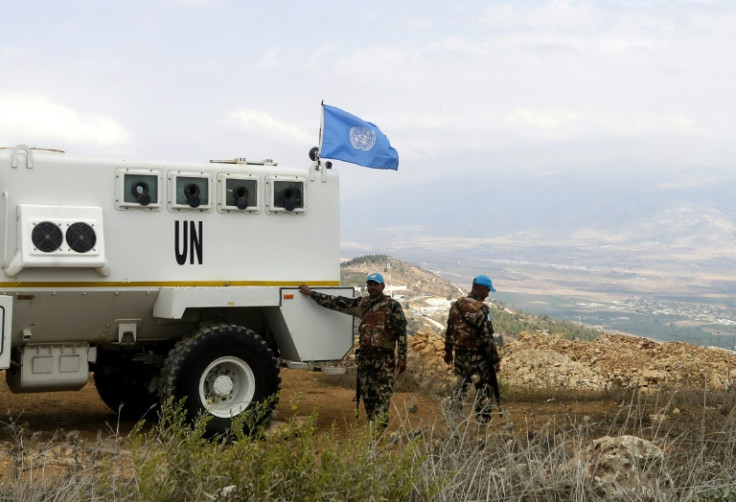Israel, Lebanon Reach Historic Agreement On Maritime Border Deal
Israel and Lebanon agreed to a deal on Tuesday for the allocation of natural gas reserves in the Mediterranean Sea, as well as the placement and security of the shared maritime border.
The move paves the way for offshore energy exploration and resolves a territorial dispute in the eastern Mediterranean Sea. Lebanon has sought to explore natural gas in the sea, while Israel produces natural gas at nearby fields.
Prime Minister Yair Lapid said in a tweet that the deal was an "achievement that will strengthen Israel's security, inject billions into Israel's economy, and ensure the stability of our northern border."
Lebanon President Michel Aoun said President Joe Biden congratulated Lebanon on the negotiations and reaffirmed U.S. support for Lebanon.
The U.S. has mediated negotiations between the two countries for months, as Israel and Lebanon have no diplomatic ties. U.S. energy envoy Amos Hochstein facilitated talks between the two sides, who have been at war since Israel claimed independence in 1948.
Lebanon Prime Minister Najib Mikati had said in a September interview with Al-Monitor that a deal was close to being finalized and acknowledged the U.S. for its mediation role.
"The Biden administration is doing its best to have this negotiation succeed," Mikati said.
A formal statement released Tuesday by Biden described the deal as a "historic breakthrough."
Biden credited French President Emmanuel Macron for support and assistance in the deal.
"After months of mediation by the United States, the Governments of Israel and Lebanon have agreed to formally end their maritime boundary dispute and establish a permanent maritime boundary between them," Biden said.
The area of the Mediterranean Sea at the center of the deal is home to a large natural gas field. Under the new agreement, Lebanon can produce gas from the field and would pay royalties for gas produced on the Israeli side.
Lebanon is working with French energy company TotalEnergies to begin preparations for production.
The deal is being seen as an economic win for Lebanon, following the 2020 explosion at the Port of Beirut and following an economic crisis.
Despite the historic agreement, the border between Israel and Lebanon will continue to be highly militarized.
Former Israeli Prime Minister Benjamin Netanyahu called the deal "disgraceful."
Hezbollah endorsed the deal, which is noteworthy since Hezbollah had threatened Israeli offshore gas drilling in the past.
The agreement is technically not a bilateral pact between Israel and Lebanon but between Israel and the US. and Lebanon, demonstrating the ability for negotiation but a continuation of hostilities.
Both countries are in times of transition, with Israel about to hold its fourth general election in five years on Nov. 1.
The Lebanese parliament failed to elect a new head of state in September. Aoun's term ends on Oct. 31 and there is no front-runner to replace him. The added political pressure and potential change have served as potential motivations to ratify the deal.
The last time Israel and Lebanon were actively in conflict with one another was when Israel and Hezbollah, an Iranian-backed militia, fought for a month in 2006, killing over 1,500 people along the Lebanese southern border.

© Copyright IBTimes 2025. All rights reserved.





















